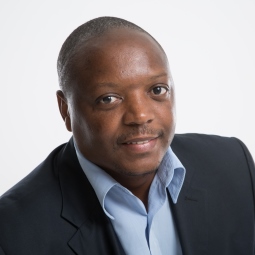CSIR's Dr Math scoops Technology in Government in Africa award
Dr Math, a mobile mathematics tutoring programme developed by the CSIR Meraka Institute, received a Technology in Government in Africa (TIGA) award in Dar es Salaam on 27 May 2011. United Nations Economic Commission for Africa (UNECA), in collaboration with the government of Finland, selected Dr Math as a winner in the category 'ICT in Education'.
Dr Math, a mobile mathematics tutoring programme developed by the CSIR Meraka Institute, received a Technology in Government in Africa (TIGA) award in Dar es Salaam on 27 May 2011. United Nations Economic Commission for Africa (UNECA), in collaboration with the government of Finland, selected Dr Math as a winner in the category 'ICT in Education'.
CSIR researcher Laurie Butgereit is the person whose creativity sparked the development of Dr Math. Through Dr Math, learners have access to a group of registered tutors who are online on computers to receive their requests for help via MXit, a popular chat service.
“Learners put through requests using MXit and receive responses via MXit. A flow management system ensures that requests are distributed to tutors who are available to help. The emphasis is on imparting skills rather than supplying answers," she says.
The biannual TIGA awards celebrate African Governments’ commitment to e-government to ensure digital interactions with their publics in the form of government to citizens; government to business or between government agencies. The concept of TIGA is premised on the ECA-led African Information Society Initiative framework to build Africa’s information and communications capacity for development.
Comments by the TIGA judges attest to the quality of the Dr Math nomination:
I loved the idea of boosting sciences in general and math in particular, especially for under privileged youngsters. It should be positioned to strategically work effectively for the region because Math is key to future success. - Anne Rachel Inne, Regional Liaison for Africa, Internet Corporation for Assigned Names and Numbers (ICANN)
Innovative, useful, inclusive, affordable for users (secondary students) and educative not only to users but to service providers (college students) as well
Matti Sinko, Technical Adviser, ISTD/UNECA.
Funding from the Department of Science and Technology, and collaboration and support from the Department of Basic Education and MXit has been instrumental to the ongoing success of Dr Math. Dr Math is part of the HP Catalyst ‘New Learner’ consortium, thereby ensuring that the CSIR shares best practice and learning with national and international collaborators.
Dr Math tutors are drawn primarily from the University of Pretoria. Since 2006, students from the Faculty of Engineering, the Built Environment and Information Technology (EBIT) at the University of Pretoria, have been doing Dr Math in fulfilment of a compulsory undergraduate module, Community-Based Project.
On a yearly basis, more than 30 students sign up for this project. Their feedback is always very positive, for example, "it was an awesome experience, but requires nerves of steel and a lot of compassion" and "it was nice to see school students willing to spend time at home and on weekends to finish their work".
Tutors also come from the African Institute of Mathematical Sciences (AIMS), a centre for education and research in Cape Town. AIMS works to promote mathematics and science in Africa, recruit and train talented students and teachers, and build capacity for African initiatives in education, research, and technology.
Dr Barrie Barnard comments, “AIMS is proud to be associated with Dr Math through the participation of some of our current postgraduate diploma students who volunteered their time to answer pupils’ questions. This opportunity provided them with valuable teaching experience as well as introducing them to an innovative use of technology for educational purposes.”
Interactions with learners using Dr Math are defined by a code of conduct, and tutors also sign an informed consent before they receive a manual to assist them in carrying out their duties.
Questions received from learners range from finding explanations for basic definitions to calls for help on how to solve problems. "We encourage tutors to teach methods, rather than supplying the answer,” says Butgereit.
Students can subscribe to Dr Math by sending a MXit contact request to 079 992 3962. If they use Google Talk or any open source Jabber server, the contact details are dr.math.rsa@gmail.com


